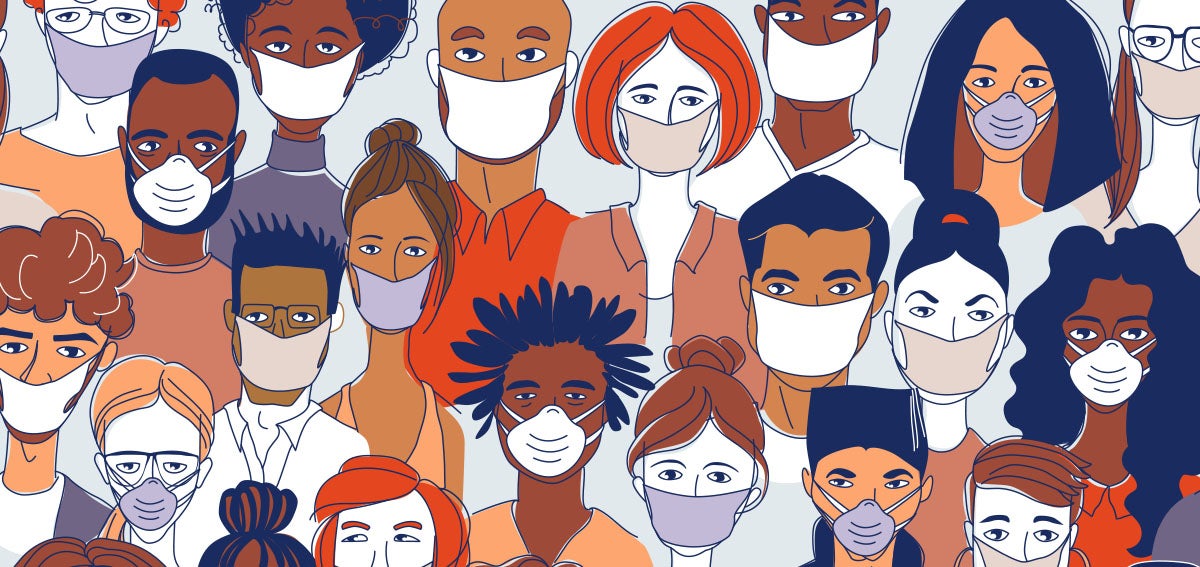|
Getting your Trinity Audio player ready…
|

An overwhelming majority of state residents say they want state policymakers to provide all the resources public health authorities need to get the COVID-19 pandemic under control, according to a new statewide poll by the California Health Care Foundation. About 9 in 10 Californians say that taming the public health crisis is highly important.
That and other findings are contained in The 2021 CHCF California Health Policy Survey. CHCF partnered with NORC, a national survey research firm, to conduct a representative survey of California residents from November 19 through January 12. The report includes residents’ experiences of the health care system in the last year and the health policy agenda they want to set for state policymakers.
Here are five key policy priorities Californians support to improve the health care system.
Provide Public Health Agencies Sufficient Resources to Fight COVID-19
By a wide margin, Californians want action on COVID-19. This priority had more support than any other priority in the three years CHCF has conducted this annual survey. Nearly two-thirds of Californians say addressing COVID-19 is “extremely important” for the state’s lawmakers to work on. This is not surprising, given the terrible toll the pandemic has taken on the physical, mental, and economic well-being of so many people in the state. In our survey, one in four residents say they know someone who died of COVID-19.
Californians see public health departments as pivotal players in the COVID-19 response, with most survey respondents saying it’s important for policymakers to ensure state and county public health departments “have the resources they need to control the spread of COVID-19.” This is highly important to about 9 in 10 state residents, including very strong majorities of Republicans, Democrats, and Independents.
Californians also want to take personal action to combat the virus. Seven in 10 say they will get the COVID-19 vaccine when it becomes available.
Continue Expanding California’s Supply of Health Care Providers
California has long faced a shortage of primary care doctors, nurses, and mental health providers. The pandemic has brought this issue home for many Californians. In the survey, 49% of residents say it is “extremely important” for state leaders to keep working to ensure California has sufficient health care providers — a big increase over last year when 41% said this was “extremely important.” COVID-19-related staff shortages and the emotional and physical toll of the work are likely to keep this issue at the forefront of Californians’ policy priorities.
Additional behavioral health providers are also desperately needed in California, as the pandemic is taking a toll on many people’s mental health. In the survey, more than half of Californians say that in the last three months, they or someone in their household has endured pandemic-caused worry or stress. For the third consecutive year, more than 8 in 10 Californians say state policymakers should “make sure people with mental health problems can get treatment.” Almost all Black Californians (95%) back this priority along with very strong majorities of White, Asian, and Latinx residents.
Push the Entire Health Care System to Address Inequity
The murder of George Floyd and months of protests last year have increased attention to inequity across American society, including the health care system. This year, CHCF added questions to the annual survey to understand Californians’ perceptions of inequities and will track them over time.
About half of Californians think it’s “harder” or “much harder” for Black residents than for White Californians to get the care they need. A similar number think it is “harder” or “much harder” for Latinx Californians compared to White Californians. By about 30 percentage points, Black Californians are more likely than people of other races to say it’s harder for Black people to get the care they need. Democrats are much more likely than Independents or Republicans to say it’s harder for Black and Latinx people to get care.
Among Californians who say Black and Latinx people have a harder time getting health care than White people, sizable majorities say many players in the health care system have a responsibility to address these inequities. Eight in 10 say federal and state governments should help solve the problem, and 7 in 10 think public health departments, health insurance plans, hospitals, and individual providers should as well.
Reduce Out-of-Pocket Costs So People Don’t Forgo Needed Care
For the third consecutive year, 8 in 10 Californians say the governor and lawmakers should work on making health care more affordable. For the second straight year, half of Californians said they skipped or postponed a health care service because of cost. Four in 10 say their condition got worse as a result of the skipped or delayed care.
Many Californians say they are worried about paying health care costs such as unexpected medical bills, out-of-pocket expenses, fees for COVID-19 treatments, and pricey prescription drugs. Even in a state with extraordinarily high housing costs, more people say they worry about paying for health care than about paying to keep a roof over their head.
Improve Care for People Experiencing Homelessness
Eight in 10 Californians think “addressing homelessness” is an “extremely” or “very” important priority for lawmakers in 2021. Three in four Californians say the state is doing a “fair” or “poor” job in providing health care to people experiencing homelessness. Two-thirds of those surveyed lack confidence that state agencies coordinate health care, housing, and other social services to provide help to people experiencing homelessness. This view was held by people of every income level, race, ethnic background, and political party.
Almost all Californians (95%) said it is at least “somewhat important” that health care and social service providers who work with people experiencing homelessness are able to share information electronically. Also, there is growing public interest in enabling service providers such as social workers and mental health professionals to respond to emergency calls about addiction, mental illness, and homelessness. Nearly two-thirds of Californians favor this idea.
Authors & Contributors



